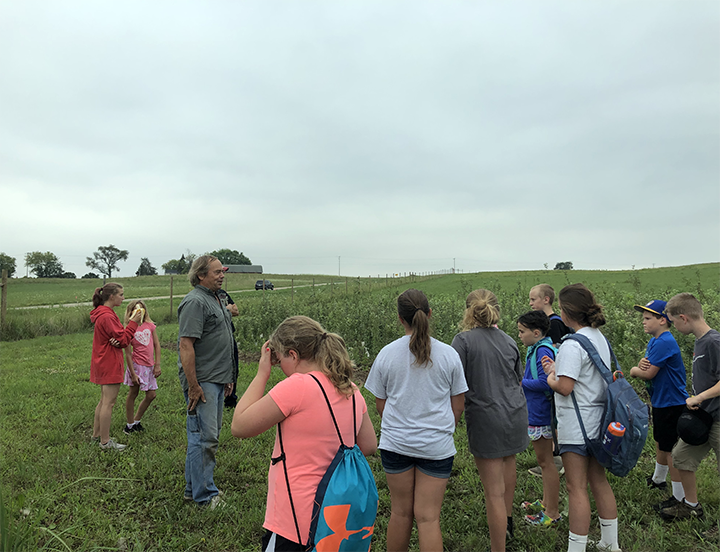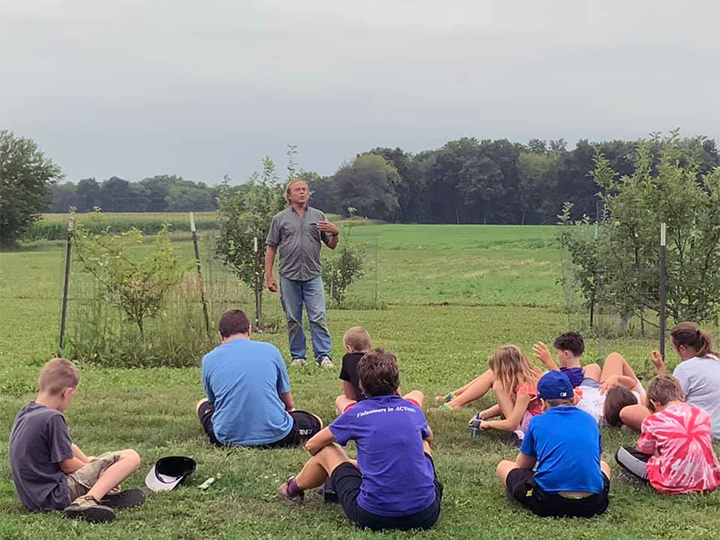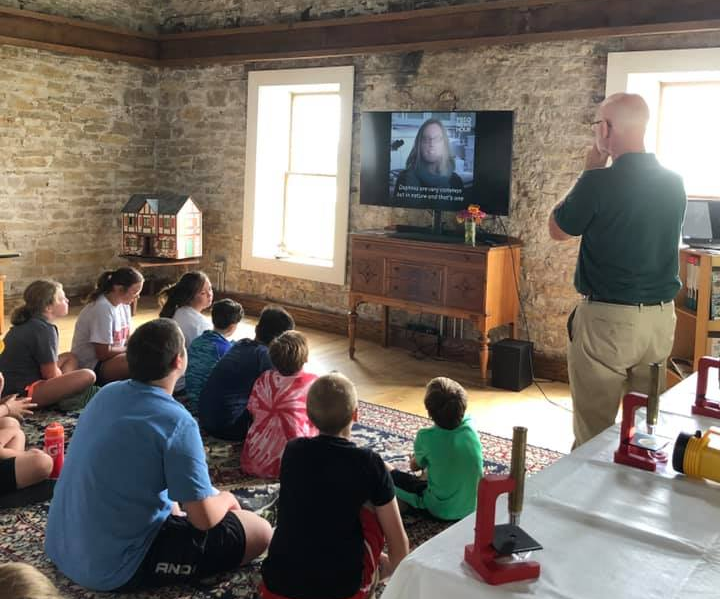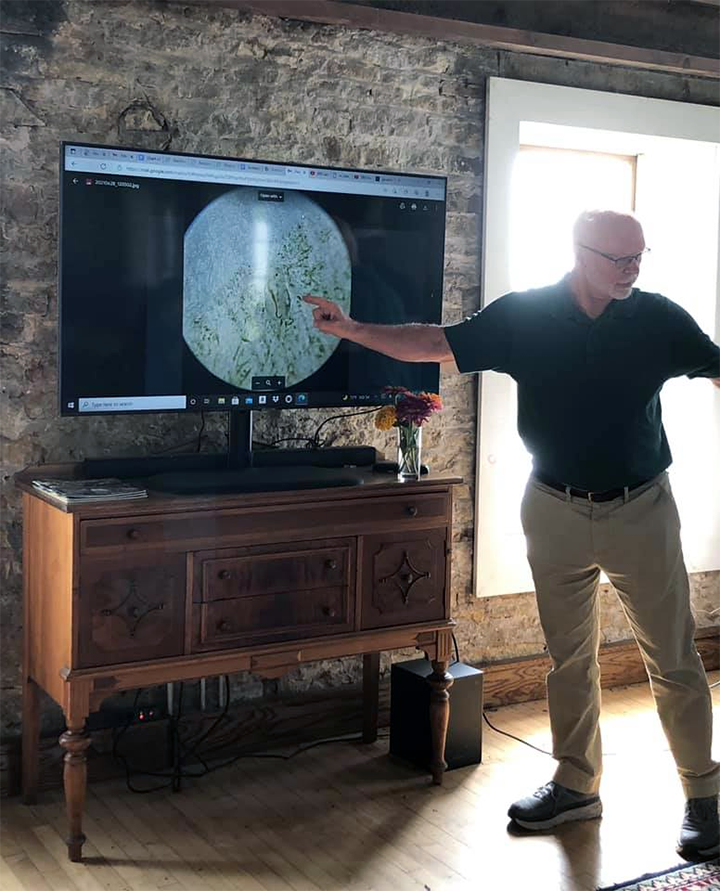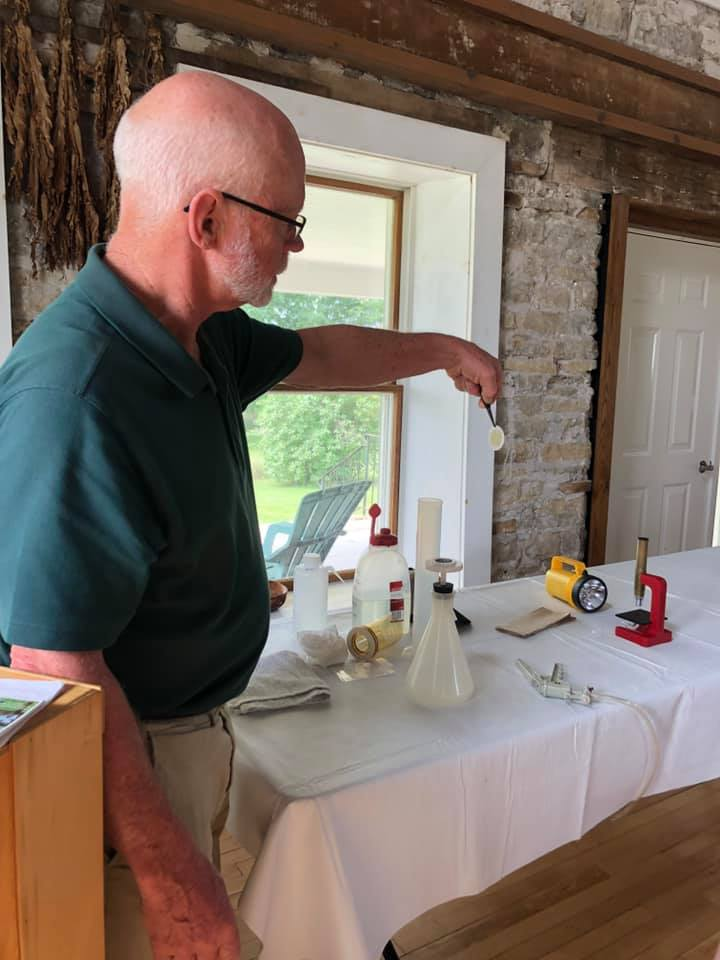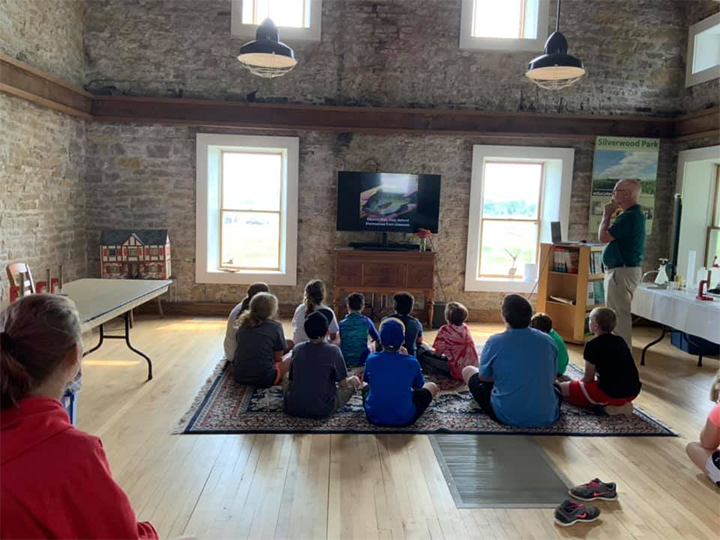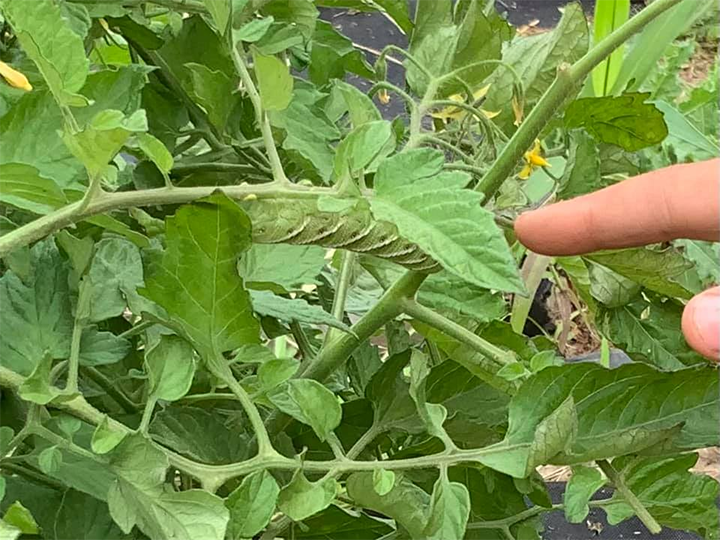Day 13
Busy day for the older campers, as after working the gardens they hiked to meet Dan Bussey, a pomologist, historian, author, and orchardist at the heirloom orchard at Silverwood Park. Dan was previously the orchard manager for Seed Savers Exchange and author of the seven- volume, The Illustrated History of Apples in American and Canada.
Details about Bussey and his project can be found in this blog post.
Dan told stories about how apples came to the United States and spread across the various regions. Collecting seeds from various species has been a life’s passion for Dan. He has grafted trees of heirloom varieties and started a nursery with the intention of growing 600 varieties at Silverwood Park. Dan shared his nursery collection and discussed the grafting process and care for the young trees. He engaged the students in seeking common pests such as the leafroller caterpillar.
Later, students hiked back to the farmstead to view the four-year old trees in Irene’s Orchard. Dan emphasized the importance of preserving heirloom varieties and discussed the apple industry and how consumer demand impacts apple options at the supermarket. He encouraged campers to support local apple growers.
Ron Anderson, the chemist who worked with campers on taking water samples, met up with the group in the Stonehouse. Having WiFi access allowed Ron to show Satellite imagery of lakes in Wisconsin, including Rice Lake. This imagery provides researchers with valuable tools for assessing a wide range of natural resource issues including water clarity.
Ron also filtered the water samples taken at Rice Lake and analyzed the samples for chlorophyll. He encouraged students to look at the filter under the microscopes and talked about what is in water, especially algae, and how that affects clarity and why that is important. He discussed how fertilizer runoff contributes to algae growth and how organic farming impacts clarity. Students also looked at images of Daphnia, ecologically important crustaceans or “fleas” that were found in the water.
The younger campers worked in their gardens, learned about the hornworm on tomatoes and the damage they can do. With keen eyes they were able to find and remove many hornworms. They learned the difference between a tobacco worm and a hornworm, finding both on the plants. Weeding, watering, and mulching was also done. Campers were able to harvest tomatoes and cucumbers for snack time.
After snack, the campers hiked the lane to the Silverwood Educational Trail picking mulberries along the way. Once entering the educational trail they sought out various trees, brush and wildflowers; kettles; mosses and ferns; burls; girdled trees; and a gully - noting how water runoff from farm fields can create erosion.
Summer School 2021 Navigation
- Summer 2021: Overview
- Day One: Student outcomes
- Day Two: Master Gardener/vermiculture
- Day Three: Agroecologist
- Day Four: Food Preservation
- Day Five: Farrier
- Day Six: Beekeepers
- Day Seven: Microbes/chickens
- Day Eight: Forrester/Monarchs
- Day Nine: Chickens/Food Print/Compost
- Day Ten: CSA/Market Grower
- Day Eleven: Rainy Day
- Day Twelve: Kayaking/Fishing
- Day Thirteen: Apples/Water Testing
- Day Fourteen: Mushrooms/Food from Harvest
- Day Fifteen: Presentations/Assessments
- Garden to Harvest@Silverwood
Welcome to Silverwood Park
Park Hours: 5:00 a.m. – 10:00 p.m.
Silverwood News
- Candlelight Hike Jan 25th January 14, 2025
- Candlelight Hike Postponed January 14, 2025
- Candlelight Hike Postponed January 14, 2025
- Grower Profile: LuckySpud July 15, 2024
- Mushroom Inoculation Workshop April 8, 2024

